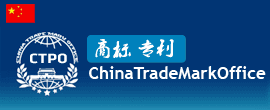
| This site in other countries/regions: |
| English 日本語 한국어 Deutsch Français Русский Italiano Español Português |
 |
||
Banks, insurers better services for tech playersImproved financing solutions to boost emerging sectors, new business tracksUnder the guidance of financial regulators, Chinese banks and insurance companies are tailoring services to the needs of technology enterprises, offering targeted solutions such as "loans plus direct equity investment", intellectual property pledge financing, and patent insurance. Commercial banks are accelerating their expansion into tech finance to better serve emerging industries and new business tracks. Banks now attach far greater importance to tech finance than they did five years ago. Beyond financial indicators, they focus more on a company's growth potential and provide more integrated, diversified services, from traditional loans to financing packages combining equity and debt, said Wang Hua, vice-president of the Hefei branch of China CITIC Bank. Wang added that banks now better understand industrial ecosystems and are more willing to fund small-scale innovators and early-stage startups. In recent years, large State-owned commercial banks, national joint-stock banks and leading city commercial banks have significantly increased lending to key national strategic projects, security-related projects, large-scale equipment upgrades, consumption upgrades and the development of new quality productive forces. The Beijing municipal branch of Industrial and Commercial Bank of China has designed a financing product for enterprises undertaking major national science and technology projects. It features a multidimensional evaluation system that relies less on financial data or collateral, using government subsidies tied to the project as a key basis for assessment. The bank offers medium- to long-term unsecured loans that match the research and development cycle, with amounts no less than the subsidy value. MicroCyto, a Beijing-based biotechnology firm focusing on synthetic biology, is one of the beneficiaries. As the lead unit of a national key R&D program for disruptive innovation, the company faced long R&D cycles and sustained upfront investment without immediate revenue, making it difficult to provide traditional collateral. ICBC Beijing Municipal Branch said the approval of a national-level R&D project serves as a form of credit endorsement for such enterprises. To further advance tech finance, the Beijing municipal branch of the People's Bank of China, together with municipal government agencies, has established a platform connecting capital, technology, talent and industry. The platform identifies companies seeking breakthroughs in "bottleneck" technologies, highlights key entrepreneurial talent projects, links them with funding resources and coordinates multiple financial institutions to jointly serve each enterprise. Prime Gene Therapeutics, a clinical-stage innovative drug developer specializing in immune-inflammatory diseases, benefited from the platform with China CITIC Bank's learning of the company's funding needs through it. While CITIC Securities advanced Prime-Gene's IPO process, China CITIC Bank provided a 30 million yuan ($4.2 million) follow-up loan combining debt and investment. Insurance funds under the CITIC Group offered performance guarantees to ensure financial continuity between R&D and listing preparation. In 2022, the Ministry of Science and Technology launched the Innovation Credit Score System, a policy tool that uses structured indicators, data and algorithms to evaluate enterprises' innovation capability, performance and future growth potential — helping financial institutions better identify tech-driven firms. The ministry, working with financial regulators, has implemented a relending facility and a special guarantee plan to support technological innovation based on this system. By the end of last year, more than 70,000 qualified technology enterprises had been recommended to 21 national banks and the National Financing Guarantee Fund. Over 7,000 companies signed financing contracts with banks, totaling over 88 billion yuan, Vice-Minister of Science and Technology Qiu Yong said at a news conference on May 22. The National Financial Regulatory Administration has also teamed up with the National Intellectual Property Administration and the National Copyright Administration to pilot IP finance ecosystems, addressing challenges in IP registration, valuation and disposal. The NFRA issued a notice in March on further expanding the pilot program for equity investment by financial asset investment companies (AICs), broadening the scope of equity investment by AICs to the provinces where the 18 pilot cities are located. The policy supports eligible commercial banks in initiating the establishment of AICs. On July 3, China Merchants Bank announced it had received regulatory approval to prepare for the establishment of CMB Financial Asset Investment Co, with registered capital of 15 billion yuan. CMB became the third national joint-stock commercial bank approved to set up such a company, following Industrial Bank and China CITIC Bank. "By leveraging financial asset investment companies, commercial banks can strengthen diversified cooperation with tech firms and further expand their business potential," said Liu Chen, a researcher at the BOC Research Institute, the in-house think tank of Bank of China. "AICs provide key platforms for banks to deepen loan-investment and debt-equity linkages. They can design customized financial products to meet corporate financing needs and work with government-guided funds and private equity firms to achieve complementary strengths in project sourcing and investment management." (Source from China daily) |
|
About us |
Contact us |
Fee FAQ |
Laws |
Marks |
Online billing
ChinaTradeMarkOffice.com Site:
International -
日本語 -
한국어 -
Deutsch -
Français -
Русский -
Italiano -
Español -
Português |